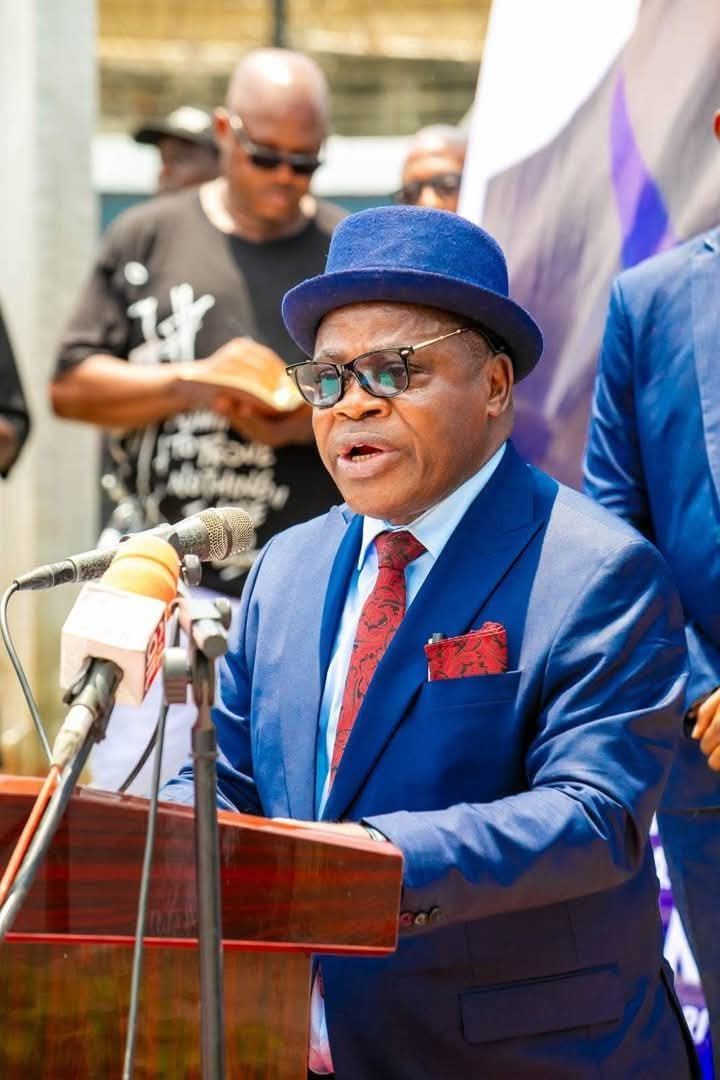PORT HARCOURT, Rivers State — In a dramatic turn of events that has sent shockwaves through Nigeria’s judicial corridors, the Rivers State House of Assembly has resolved to compel the Department of State Services (DSS) to investigate none other than the Honourable Chief Judge, Justice Simeon Amadi, over allegations of age falsification in service.
This development, emerging from a charged plenary session in Port Harcourt on Thursday, has ignited fierce debates about judicial integrity and the broader political ethos in the state.
The controversy erupted when documents, presented by House Leader Hon Major Jack, allegedly revealed discrepancies in the recorded age of Justice Amadi.
The documents, which have since become the centrepiece of the unfolding scandal, were passionately highlighted by Deputy Speaker Hon Dumle Maol.
“These documents before me simply say that the Chief Judge of the state, Justice Simeon Amadi, falsified his age in service. Mr Speaker, that is a very serious allegation,” he declared, urging the House to take immediate legislative notice.
Speaker Martin Amaewhule, a seasoned lawmaker with decades of political experience, backed the call for transparency, stating emphatically that the allegations demand a thorough and independent probe.
“The documents are only suggesting a case of age falsification by the honourable Chief Judge of the state. What it means is that there has to be an investigation to that effect,” Amaewhule asserted, reinforcing the Assembly’s commitment to uphold accountability within the highest echelons of the judiciary.
This sensational move by the Assembly is not merely a bureaucratic exercise but a politically charged signal to all stakeholders that no one is beyond scrutiny, regardless of the stature they hold.
The decision to engage the DSS underscores the growing public and political demand for a clean, credible, and transparent judicial system in Rivers State.
Critics argue that such allegations, if proven true, could severely undermine the trust placed in the judiciary—a pillar of democratic governance in Nigeria.
Political pundits have been quick to weigh in, suggesting that the probe could represent the tip of a broader reform agenda.
Some sceptics speculate that this development might be harnessed by political adversaries to destabilise the current administration, while others see it as an overdue intervention to rid the judiciary of any semblance of corruption and misrepresentation.
With Rivers State already a hotbed of political intrigue, the outcome of this probe could have far-reaching consequences not only for the Chief Judge but for the entire judicial and political landscape in the region.
The DSS, now at the epicentre of this inquiry, is expected to conduct a meticulous investigation and submit its findings to the Assembly in the coming weeks.
The legal fraternity and the citizenry alike are holding their collective breath, as the probe could set a precedent for future accountability measures in Nigeria’s courts.
The case also raises profound questions about record-keeping and verification processes in civil service appointments—a matter that might compel a systemic overhaul.
As the drama unfolds in the corridors of power in Port Harcourt, one thing remains indisputable: the call for accountability in Rivers State has never been louder.
The Assembly’s resolute stance serves as a stark reminder that even the highest offices are not immune to scrutiny.
In a nation where political battles often intertwine with legal battles, this unfolding controversy promises to be one of the most sensational—and potentially transformative—episodes in the annals of Nigerian jurisprudence.










